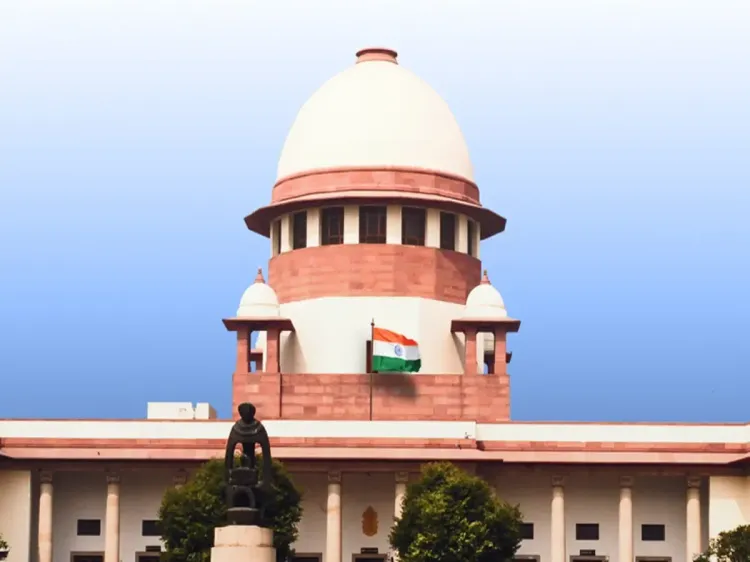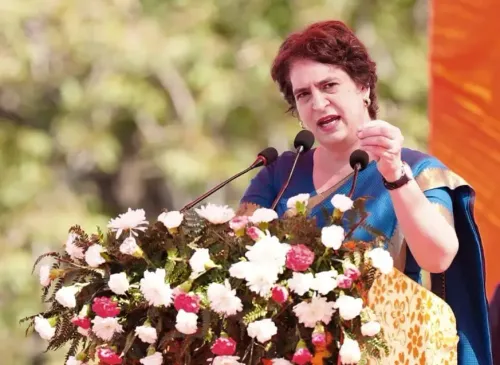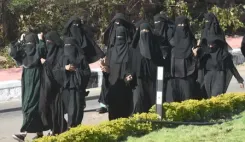Why Has the SC Extended the Stay on the ED’s Probe into TASMAC?

Synopsis
Key Takeaways
- The Supreme Court has halted the ED's investigation into TASMAC.
- Concerns raised over federal overreach into state jurisdiction.
- The Tamil Nadu government asserts it has addressed corruption issues.
- The ED maintains its focus on money laundering allegations.
- Madras High Court supports the ED's mandate against corruption.
New Delhi, Oct 14 (NationPress) The Supreme Court has chosen to continue its stay on the Enforcement Directorate (ED) investigation into the money laundering allegations against Tamil Nadu’s state-owned liquor corporation TASMAC.
A bench led by Chief Justice of India (CJI) B.R. Gavai and Justice K Vinod Chandran indicated it will revisit the issue once the pending review petitions concerning the Prevention of Money Laundering Act (PMLA) verdict are resolved.
The top court was addressing petitions lodged by the Tamil Nadu government and TASMAC, which are contesting the Madras High Court's ruling from April 23 that dismissed their plea against the ED’s searches at the TASMAC headquarters, thus allowing the investigation to advance.
During the proceedings, CJI Gavai questioned whether the ED's investigation represented an “encroachment” on the state's authority to handle such matters.
In defense, Additional Solicitor General (ASG) SV Raju, representing the ED, claimed that the agency uncovered “large-scale corruption” that was being obscured by arguments surrounding federalism.
“Evidence collected post-searches will demonstrate rampant corruption,” ASG Raju asserted, accusing the Tamil Nadu government of stifling the ED’s investigation by closing FIRs related to predicate offenses.
“In the past six years, we have dealt with numerous ED cases. I refrain from elaborating further because my previous comments generated significant media attention,” CJI Gavai remarked, highlighting his earlier criticisms of the ED for “overstepping boundaries” and undermining the federal framework.
“When positive remarks about the ED are made, they receive minimal media coverage. That is my concern,” the government’s legal representative responded.
Meanwhile, senior advocate Kapil Sibal, representing the Tamil Nadu government, contended that the “corruption” could be managed by the state authorities, accusing the ED of overstepping its jurisdiction.
ASG Raju countered that the ED’s focus was on the money laundering component rather than the corruption claims.
Previously, the Supreme Court had expressed its dissatisfaction with what it perceived as the ED’s overreach.
“Your ED is exceeding its authority. You are fundamentally violating the federal structure. How can there be an offense against the corporation?” questioned the CJI-led bench.
Sibal argued that the state had already acted against corruption allegations, stating, “The state has filed 41 FIRs from 2014 to 2021 against individuals accused of bribery for liquor outlet allocations. These were individual criminal acts, not corporate.”
He further claimed that despite this, the ED intervened in 2025, raiding the TASMAC head office and confiscating phones and devices from officials.
“Everything was cloned. This is a blatant overreach,” he argued, urging the court to prevent the ED from utilizing any information obtained from these devices, citing a serious violation of privacy.
Senior advocate Mukul Rohatgi, representing TASMAC, accused the ED of infringing on officials' privacy by cloning their devices without justification.
In response, ASG Raju asserted that the case involved a scam worth Rs 1,000 crore, alleging that the ED was investigating substantial corruption involving state officials and politicians. He claimed that distillery companies had reportedly funneled large sums of unaccounted cash and bribed to secure lucrative contracts from TASMAC.
Additionally, he alleged that TASMAC retail outlets were selling liquor at prices exceeding the Maximum Retail Price (MRP).
However, the apex court raised concerns about the ED’s jurisdiction in this matter, questioning, “Where is the predicate offense? The state is already investigating. Why should the ED intrude?”
Previously, the Madras High Court had dismissed the state’s and TASMAC’s claims, stating that money laundering constituted “a crime against the people of the nation.” The court deemed allegations of harassment as “insufficient and highly disproportionate” and cautioned against attributing political agendas to investigative bodies.
“If claims of harassment are taken seriously, it could lead to an avalanche of litigation, as every accused might challenge valid investigations,” the Madras High Court noted in its ruling.
It also rejected the state government’s assertion of political motives behind the ED’s actions, asserting that courts should not participate in “political games” or assess “political dynamics at play.”









